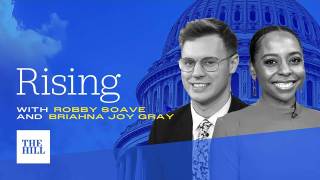Rabid hate speech against Jews isn’t a matter of interpretation

The Modern Language Association, a 140-year-old organization of scholars in English and language departments across North America, recently adopted an “emergency motion” calling on university administrations to defend the academic freedom of students and faculty who have “condemned the Israeli government for its massive bombardment of the Gaza Strip.”
Whatever anyone thinks about Israel or Zionism, however, it should still be possible to protest the Israel-Hamas war without lurching into antisemitism.
Unfortunately, the temptation to raise anti-Jewish tropes appears to have been irresistible, judging from the slogans at campus demonstrations in support of the Palestinians. There is no contradiction between defending academic freedom and criticizing offensive speech.
Consider the frequently heard chant, “From the river to the sea, Palestine will be free.”
There are three entities between the Jordan River and the Mediterranean Sea: Israel, the occupied West Bank and Gaza. Freeing Palestine in the entirety of that small stretch of land would mean forcibly eradicating Israel, with the expulsion or death of many or most of the Jewish inhabitants.
As Hassan Nasrallah, the leader of Hezbollah, recently warned Israel’s Jews, “Here, you don’t have a future, and, from the river to the sea, the land of Palestine is for the Palestinians and for the Palestinian people only.”
For Israelis and their supporters, of any faith or background, the call to eliminate the Jewish state is ominous, threatening and inherently antisemitic.
Defenders of the slogan, however, claim to see it differently.
According to a report by Al Jazeera, the chant is an “egalitarian” call for the rights of “Palestinians to live in equality, freedom and dignity like everyone else.”
Rep. Rashida Tlaib (D-Mich.), facing censure for her use of the phrase, maintained that “From the river to the sea is an aspirational call for freedom, human rights and peaceful coexistence, not death, destruction, or hate.” She did not explain how that squares with Hamas’s adoption of the slogan in connection with its announced campaign for “the annihilation of Israel.”
Even assuming good faith when Tlaib, and others, assert that “from the river to the sea” means something benign and democratic, why would they insist on repeating a phrase that is also associated with terrorism and perceived as murderous by so many who hear it?
It cannot be that a speaker’s intent — rather than the impact on listeners — should determine the acceptability of a phrase or symbol. On that theory, it is perfectly fine for right-wing demonstrators to wave the Confederate battle flag, which they often claim is an expression of southern heritage unrelated to slavery or white supremacy.
Indeed, it would thus be wrong to remove Confederate memorials from so many locations, including Arlington National Cemetery, given the protests by those who believe they were intended only to commemorate “reconciliation and national unity,” rather than the so-called “Lost Cause” and the rise of Jim Crow.
It is now routine for campus diversity, equity and inclusion programs to police microaggressions, place common words off-limits, ban anything that might make a student feel “unsafe” and announce that impact can outweigh intent. It should not be surprising, therefore, that university administrators have been calling for greater civility at anti-Israel demonstrations.
At Columbia University, for example, the deans of all 17 faculties issued a joint statement acknowledging that the chants of “from the river to the sea” are “experienced by many Jewish, Israeli and other members of our community as antisemitic and deeply hurtful.” They asked only that “the grace of compassionate engagement be extended to all members of our community in equal measure.”
Even that mild appeal for voluntary restraint was too much for some.
Professor Rashid Khalidi, Columbia’s Edward Said Professor of Modern Arab Studies, posted an open letter denouncing the deans’ statement as “the latest instance of Columbia’s discrimination against Palestinian, Arab, Muslim and other students who support Palestinian rights.”
The statement, Khalidi said, amounts to “a new norm that prohibits using or learning about these terms and their histories,” while unilaterally deciding “that Palestine should remain unfree from the river to the sea.”
Oblivious to the irony, Khalidi imputed oppressively sinister consequences to the deans’ conciliatory statement, while dismissing the reactions of Israeli and Jewish students to the far more threatening chant. Those making anti-Zionist statements must not suffer even polite criticism of their language choices, but Jewish students confronted by constant verbal assaults will just have to shut up and take it.
There are yet more intimidating anti-Jewish slogans, such as “by any means necessary,” which is a clear call for violence. Still worse is the demand to “globalize the intifada,” which seemingly endorses attacks on Jews and Jewish institutions outside Israel, as have been increasingly happening in Europe, Canada and the United States. These slogans inevitably make many Jewish and pro-Israel students feel unsafe, which is their predictable effect.
A recent survey showed that nearly half of campus anti-Israel protesters could not identify the river and sea they were chanting about. The leaders of the movement, of course, surely know exactly where the planned Palestinian state would be established at the expense of Israel’s very existence.
Anti-Zionism is not the same thing as antisemitism, although there may be considerable overlap. A professor of medicine at the University of California San Francisco, for example called Zionism “a structural impediment to health equity” in the U.S., as if Jewish doctors could somehow be accountable for the poor state of American medical care.
Even when hateful speech is protected by the First Amendment and covered by academic freedom, it may still be called out for antisemitism.
If protesters truly reject Hamas’s eliminationist objective, and instead are seeking only, as Tlaib put it, “freedom, human rights and peaceful coexistence,” they could make a simple change in their slogan that would make it less menacing and more humane:
“From the river to the sea, Palestinians will be free.”
It would still rhyme while allowing for Israel’s survival. But of course, that is not what they are after.
Steven Lubet is the Williams Memorial Professor Emeritus at the Northwestern University Pritzker School of Law.
regular post copyright









